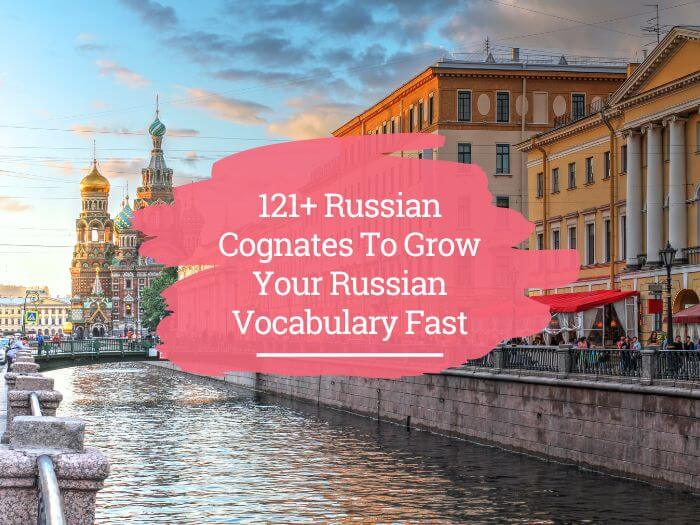Are you learning Russian? Do you want to expand your Russian vocabulary quickly?
English and Russian have plenty of words that look similar because they come from the same roots. These familiar words are also known as cognates.
As you can imagine, getting familiar with these Russian cognates will give your vocabulary an instant level up!
So this article is going to cover everything you need to know about Russian cognates including what they are, how to recognise them, and how to avoid errors with false cognates, also known as false friends.
Pro Tip
By the way, if you want to learn Russian fast and have fun, my top recommendation is Russian Uncovered which teaches you through StoryLearning®.
With Russian Uncovered you’ll use my unique StoryLearning® method to learn Russian through story… not rules. It’s as fun as it is effective. Plus, you'll find lessons on Russian cognates to boost your Russian vocabulary fast.
If you’re ready to get started, click here for a 7-day FREE trial.
Table of Contents
What Are Russian Cognates?
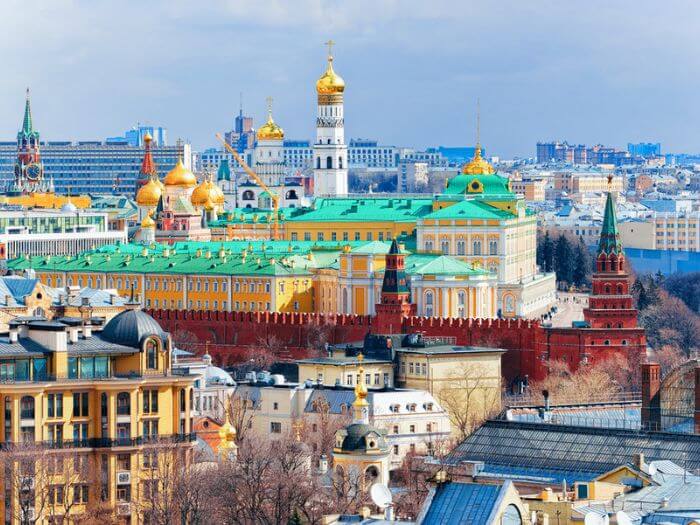
Cognates (also known as когнаты in Russian) are vocabulary terms that come from the same etymological roots. You can look at words like математика and “mathematics” as an example.
The two cognate terms come from the same origin and now the Russian and English terms resemble each other.
- mathematica
- > mathematics (ENG)
- > matematika (математика) (RUS)
If you like word origins and etymology, then you might know that both the words математика and “mathematics” come from the Latin mathematica. Alongside Greek, Latin is the donor language for a lot of cognate words.
Shared Borrowing In English And Russian
Despite English being a Germanic language and Russian being a Slavic one, both languages have borrowed extensively from languages like Latin, Greek, French and Italian.
As a result, there are loads of Russian words that are similar to English and have the same origins and closely related meanings. Moreover, these terms often have specific patterns that you can identify to boost your vocab quickly.
It’s worth mentioning that когнаты/cognates are different from Russian words like токшоу (talk show) дизайнер (designer) and коучинг (coaching).
These kinds of terms are just loanwords that the Russian language has borrowed from English directly.
Russian False Friends
For some words that have the same origin, the meanings have changed and diverged over time.
This is what’s called a ложный друг (false friend) and it’s important to identify these false cognates to avoid confusion.
That being said, most cognate words do have similar meanings. And of course, we’ll discuss these words in more detail later on in the article.
Shared Origins Of English And Russian
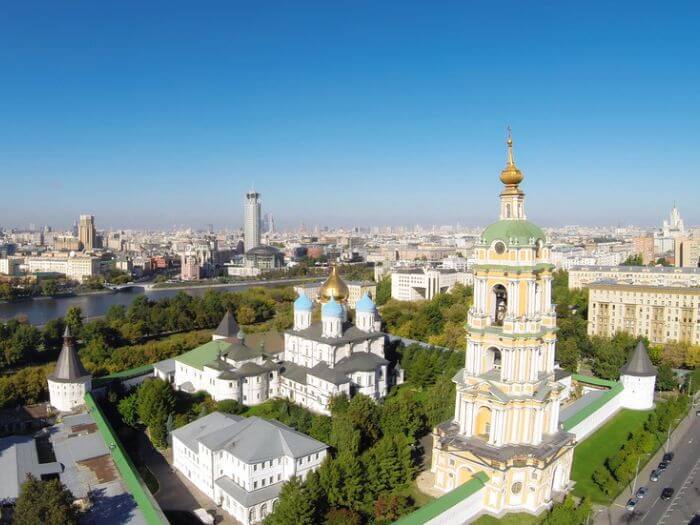
Going back to their origins, both Russian and English actually belong to the same language family. The group is called the Indo-European family and is quite large and includes languages like Irish, German, Italian, Czech, Hindi, and Farsi.
This shared relationship means that languages spoken across wide geographic ranges can still have cognates.
You can see this kind of shared commonality in the word for the number “three” in languages from different branches of the Indo-European family.
- trí – Irish (Celtic branch)
- tri – Russian (Slavic branch)
- tre – Italian (Romance branch)
- drei – German (Germanic branch)
- tīn – Hindi (Indo-Iranian branch)
You’ll find Russian and English cognates like this as well. Of course, these kinds of cognates have far fewer patterns than those that were more recently borrowed.
Tips For Spotting Russian Cognates
Here are a few tips for noticing cognates shared between English and Russian and making the patterns easier to spot.
As you might know from my article on Russian pronunciation, the th sound in English (like in maths or thistle) doesn't exist in Russian.
As such, Russian cognates that have a ‘th’ in English will just use a ‘t’ in Russian. Likewise, there is no ‘h’ sound (like in hill or happy) so cognates will often have a ‘g’ sound instead. Here are some examples:
| Russian Word | Pronunciation | Incorrect Pronunciation | Meaning |
| 1. Тезис | tezis | NOT | thesis |
| 2. Театр | teatr | NOT | theater |
| 3. Алкоголь | alkogol | NOT | alcohol |
| 4. Гармония | garmonia | NOT | harmony |
It’s worth noting that in some instances, where a word has an ‘h’ in English, it will have no sound in Russian instead of a ‘g.’ The most common example is the word for “history,” which is история (istoriya) and not гистория (gistoriya).
Patterns For Russian-English Cognate Words
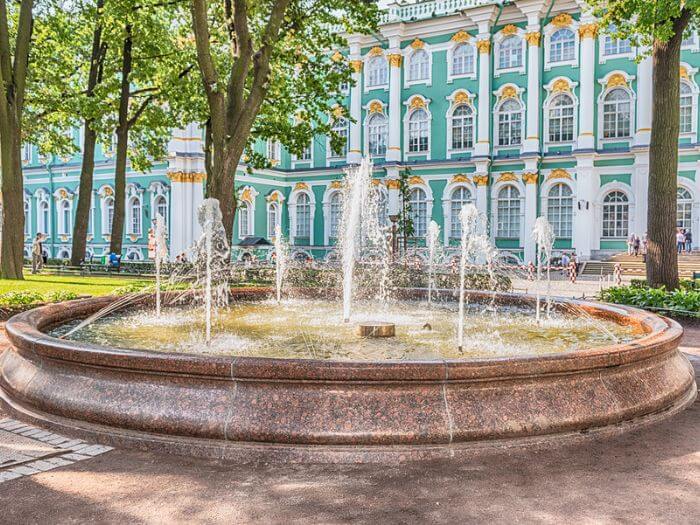
The first group of cognates that we’ll cover are those that have specific and consistent patterns. So once you know the pattern you can usually (though not always) apply it to understand an unfamiliar cognate word.
Often, you just have to swap out the ending of a Russian word to translate it into English. And of course, you can do the same thing in reverse when you want to try and make a Russian word.
Here are a few of the most common patterns:
The Endings -ика And -ics
The Russian suffix -ика is often equivalent to the English -ics. As these all end in -а, these are all feminine nouns in Russian.
- 5. Математика (mathematics)
- 6. Политика (politics, policy)
- 7. Физика (physics)
- 8. Экономика (economics)
- 9. Роботика (robotics)
The Endings –ура And –ure
Cognate words that end in –ура in Russian typically end with -ure in English.
- 10. агрикултура (agriculture)
- 11. архитектура (architecture)
- 12. литература (literature)
- 13. скульптура (sculpture)
The -sis And -з Endings
Most words that end in -sis in English, end with a simple -з in Russian.
- 14. Анализ (analysis)
- 15. Диагноз (diagnosis)
- 16. Синтез (synthesis)
- 17. Гидролиз (hydrolysis)
The Endings -ия And -y
A whole host of words came into English from Greek and Latin. These came to English via French and now end with -y. In Russian, they retain more of their original ending and often end in -ия.
- 18. территория (territory)
- 19. гармония (harmony)
- 20. история (history)
- 21. анатомия (anatomy)
- 22. категория (category)
There are also a few words that end in -ия in Russian that end with -ion in English
- 23. религия (religion)
- 24. рецессия (recession [economic])
- 25. коррупция (corruption [political])
- 26. эрозия (erosion)
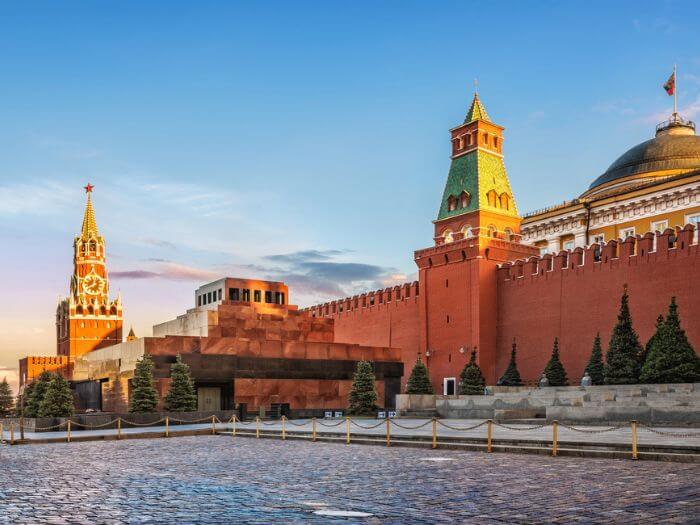
The Endings -(a)tion And-ация
Words that end in -ация in Russian usually have an English equivalent with the ending -ation.
- 27. Цивилизация (civilization)
- 28. Информация (information)
- 29. Федерация (federation)
- 30. Комбинация (combination)
The Endings -ical, -ic And -ический
Words that end with -ический in Russian often end with -ic or -ical in English.
- 31. Биологический (biologic(al))
- 32. Экономический (economic)
- 33. Геологический (geographic)
- 34. Политический (political)
- 35. Сатиричекий (satirical)
The Endings -ology And -ist As -ология And -ог
Words that end in –ология (the study of something) finish with the suffix -ology in English. While the person who studies these subjects often ends in -ologist in English, they often end with just -ог in Russian.
- 36. Биология, биолог (biology, biologist)
- 37. Экология, эколог (ecology, ecologist)
- 38. Палеонтология, палеонтолог (paleontology, paleontologist)
There are also words not related to studying or science that end in -ist in both Russian and English.
- 39. Эгоист (egoist)
- 40. Атеист (atheist)
- 41. Царист (tsarist)
- 42. Журналист (journalist)
Важно/Important
The ending -ист in Russian becomes -истка for women. Например/for example:
- атеист, атеистка – atheist (m), atheist (f).
The Endings -ность And -ity, -ness
Usually, a word that ends in -ность in Russian refers to a process, a concept, or an abstract idea. In English, the equivalents are usually formed with the endings -ty and -ness.
- 43. реальность (reality)
- 44. солидарность (solidarity)
- 45. абстрактность (abstractness)
- 46. конкретность (concreteness [non-vagueness])
Важно/Important
All Russian words that end in -ность are feminine. На пример/for example:
- Та же конкретность (the same concreteness)
- идеологическая солидарность (ideological solidarity)
The Endings -ism And -изм
Words that end in -изм (-izm) in Russian usually include political and philosophical concepts as well as artistic movements. The English counterparts end in -ism.
- 47. Минимализм (minimalism)
- 48. Максимализм (maximalism)
- 49. Альтруизм (altruism)
- 50. Эгоизм (egoism)
- 51. Модернизм (modernism)
Other Russian Cognate Patterns
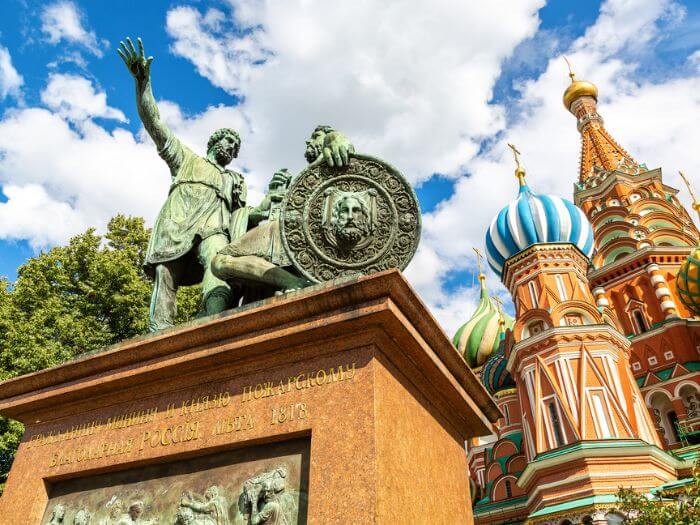
The Russian cognate patterns you've learned so far are fairly consistent and straightforward. The next group of patterns is a bit less regular.
The Endings -а
There are a lot of words in Russian that are cognates and pronounced very similarly to their English counterparts but have an -a at the end.
- 52. Арка (arch)
- 53. Группа (group)
- 54. Лампа (lamp)
- 55. Музыка (music)
- 56. Гитара (guitar)
- 57. Планета (planet)
- 58. Яхта (yacht)
- 59. Эпоха (epoch)
- 60. Сигара (cigar)
Some of these Russian words that end with an -a have a silent ‘e’ at the end in their English counterparts.
- 61. Ваза (vase)
- 62. Коллега (colleague)
- 63. Минута (minute [time])
- 64. Терасса (terrace)
- 65. Европа (Europe)
Letter Changes
There are a few letters or letter combinations that the Russian language generally avoids. As such, there are times when the Russian cognates are a bit different than you might expect or have added letters.
The Letters ‘U’ And ‘В’
In some places where English uses the letter ‘u’ you’ll see a ‘в’ if the word has a cognate in Russian. You’ll most often see this in words that use the combination ‘au’ or ‘eu’ in English.
Letter Combinations Au And Ав
- 66. Август (August)
- 67. Автор (author)
- 68. Динозавр (dinosaur)
Letter Combinations Eu And Ев
- 69. Евро (euro [currency])
- 70. Европа (Europe)
- 71. Псевдоним (pseudonym)
The Letters ‘C’ And ‘Ц’
Oftentimes the soft c in English will have a counterpart with the letter ц (ts) in Russian.
- 72. Цирк (circus)
- 73. Циник (cynic)
- 74. Цивилизация (civilization)
- 75. Церемония (ceremony)
- 76. Центр (centre)
Russian Verbs Ending In -овать
A large number of Russian verbs with infinitives that end in -овать or -евать were borrowed from French or German. As such they often have cognates in English.
- 77. лакировать (to lacquer, to polish)
- 78. реформировать (to reform)
- 79. танцевать (to dance)
- 80. флиртовать (to flirt)
Adjectives Ending In –НЫЙ
Many adjectives in Russian that were borrowed from languages like French, Latin, and Greek have the ending -ный. Often these adjectives were borrowed into English from the same languages.
However, for these adjectives, it’s much harder to pick out a strong pattern.
- 81. эмоциональный (emotional)
- 82. културный (cultural/educated)
- 83. интересный (interesting)
- 84. кофейный (coffee (adj))
- 85. серьёзный (serious)

Russian Cognates That Are Nearly The Same
There are a handful of words, mostly borrowed from French, that are almost the same as their English equivalents. These have less clear patterns other than the fact these often end in consonants or consonant clusters.
- 86. Апеттит (appetite)
- 87. Балет (ballet)
- 88. Гараж (garage)
- 89. Десерт (desert)
- 90. Инструмент (instrument)
- 91. Континент (continent)
- 92. Крем (creme)
- 93. Минимум (minimum)
- 94. Мускул (muscle)
- 95. Океан (ocean)
- 96. Пульс (pulse)
- 97. Сюприз (surprise)
- 98. Текст (text)
- 99. Факт (fact)
- 100. Шофер (chauffeur)
- 101. Эффект (effect)
- 102. Номер (number)
- 103. Идея (idea)
- 104. Субъект (subject)
- 105. Стадион (stadium)
- 106. Балкон (balcony)
- 107. Фрукт (fruit)
- 108. Юмор (humor)
Months Of The Year
All of the names for months in modern Russian are cognates with their English counterparts since all of these come from Latin terms and roots.
The names of months have gone through changes since they were borrowed a few hundred years ago, but you can still see the connection.
- 109. Февраль (February)
- 110. Март (March)
- 111. Априль (April)
- 112. Июль (July)
- 113. Октябр (October)
- 114. Ноябрь (November)

Other And Older Russian Cognates
Up to this point, you've discovered Russian cognates that are fairly transparent like биология (biology) or цирк (circus). However there are other cognates that are less obvious like English “night” and Russian ночь.
Words like this ultimately come from the same Indo-European roots but don’t really have any well-defined pattern. And sometimes their relationship isn’t obvious at first glance.
Just remember, you don't have to learn all of these now, but getting some familiarity can help you master them as you keep learning Russian.
- 115. Брат (brother)
- 116. Нос (nose)
- 117. Кот (cat)
- 118. Ночь (night)
- 119. Три (three)
- 120. Сестра (sister)
- 121. Лук (onion)
The last word лук might not seem obvious, but when you remember that a “leek” is a kind of onion, the connection becomes clearer.
Common Russian False Friends
Words are always on the move. They change grammatical gender, sounds shift, and meaning changes. As a result, some words that are borrowed from the same source might look or sound similar but have very different meanings in different languages.
One example of two words having the same root but different meanings is the Russian word эксплуатация. The word is cognate with the English word “exploitation.”
However, while “exploitation” usually refers to the deceitful or underhanded use of someone or something, эксплуатация usually refers to mining or extracting minerals or natural resources.
Likewise, The Russian word стул (chair) ultimately comes from the same root word as the English word “stool.” However “stool” came to mean a specific kind of chair in English while стул is the de facto word for chair in Russian.
Don’t get too stressed. Most cognate words are not false friends. However, it’s good to learn some of the most common ложные други to make sure that you’re communicating clearly and getting your meaning across.
Here are some of the main ones that might trip you up:
| Russian Word | Sounds like | but Really means |
| актуалный | actual | current |
| артист | artist | entertainer, actor |
| аудитория | auditorium | audience |
| конкурс | concourse | competition, contest |
| консервировать | to conserve | to preserve (food), to can, to jar |
| клей | clay | glue |
| лист | list | leaf, a piece of paper |
| лунатик | lunatic | sleepwalker |
| люстра | luster | chandelier |
| магазин | magazine | store |
| марка | mark | stamp |
| митинг | meeting | (political) rally |
| мултипликация | multiplication | animation |
| проспект | prospect | avenue, boulevard |
| стул | stool | chair |
| труп | troupe | dead body, corpse |
| цитата | citation | quote, quotation |
| Фабрика | fabric | factory |
| фамилия | family | surname |
Complex Russian False Friends
This last group of cognate words includes pairs that are a bit more complex than most false friends. They often come from the same Latin and Greek root words but the meanings are close enough that they can be confused.
For example, you could describe someone as интеллигентный человек. This doesn’t actually mean “intelligent person.” It’s better translated as “cultured person” or “educated person.”
The confusion lies in the fact that cultured people are often (though not always) described as intelligent. So интеллигентный can appear in similar places and descriptions as words like умный and разумный (smart, intelligent).
In English, an idea or someone’s shining intellect can be described as brilliant. In Russian бриллиант means diamond, the brilliant gem.
There’s even a famous Russian film called бриллиантовая рука which does not refer to a shiny or intelligent arm, but an arm with diamonds (it makes sense in context). If you want to say “brilliant” in Russian, go for блестящий.
The word Организм can and often is translated into English as “organism.” However, the word организм has another meaning that doesn’t easily map to English vocabulary.
In Russian, you can talk about свой организм which refers to a person’s whole biological and physical being. As such, something can be described as полезно or безопасно для организма, meaning that it’s good or safe for the body/one’s bodily health.
In English, when you have sympathy for someone, you have a feeling of compassion or a sense of feeling something alongside them. In Russian, симпатия is more broad and refers to a general attraction, warm feelings, or a liking you have for someone.
If you want to commiserate or express compassion, use the Russian words сострадание or сочувство.

Becoming A Master Of Russian Cognates
Вот и все! Your introduction to Russian cognates is now complete. Now you can look at Russian words with similar origins and find patterns to understand what they mean. With these, you can expand your Russian лексикон (vocabulary) quickly.
At the same time, you now know that some cognate words actually have quite different or overlapping meanings, so you have to be aware as you go forth on your Russian learning adventure.
That being said, while learning Russian cognates can help you identify related words more easily and learn new words, there are quite a lot of patterns. And many of these have exceptions or idiosyncrasies.
So just remember that learning cognates can never take the place of studying Russian vocabulary or learning Russian grammar.
And if you want an effective way to learn Russian, what better way than to follow the rules of StoryLearning and read books in Russian or Russian short stories.
And if you need more support, my comprehensive Russian course, Russian Uncovered can help too. The course teaches you Russian via a story, not grammar rules. And you'll find cognate lessons to help you grow your vocab quickly. Click here for a free 7-day trial of the course.
So now it's time for you to go further in your journey to learning the Russian language. As you go, use these cognate words and patterns to spot new words and expand your vocab! Enjoy the journey and удача из удач (best of luck)!

Olly Richards
Creator of the StoryLearning® Method
Olly Richards is a renowned polyglot and language learning expert with over 15 years of experience teaching millions through his innovative StoryLearning® method. He is the creator of StoryLearning, one of the world's largest language learning blogs with 500,000+ monthly readers.
Olly has authored 30+ language learning books and courses, including the bestselling "Short Stories" series published by Teach Yourself.
When not developing new teaching methods, Richards practices what he preaches—he speaks 8 languages fluently and continues learning new ones through his own methodology.
